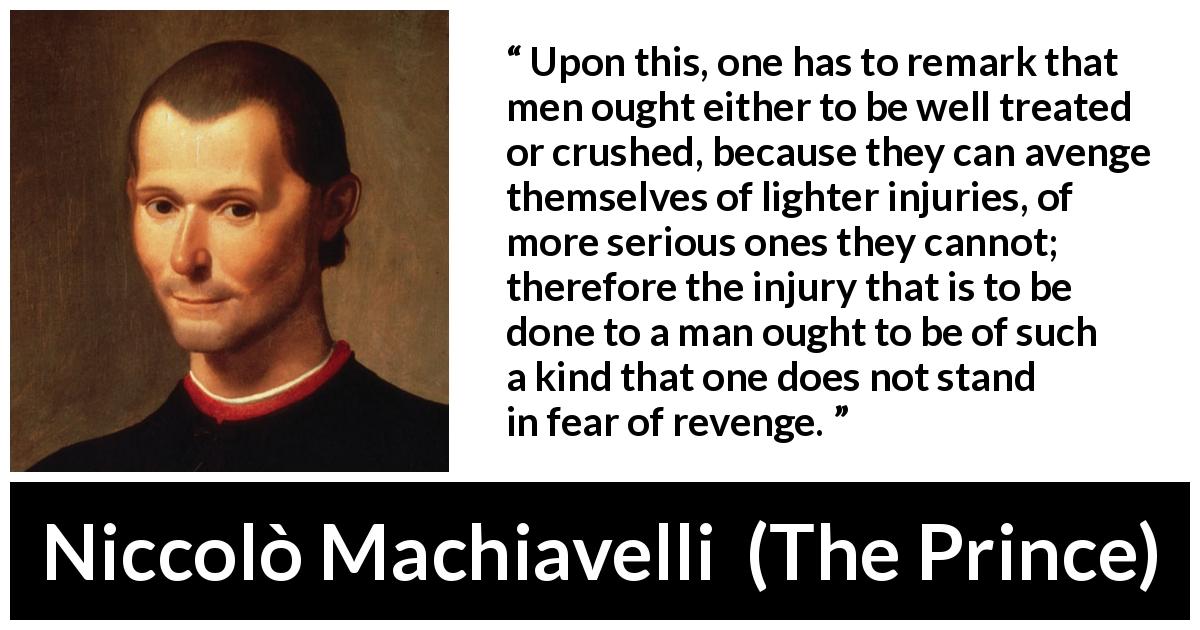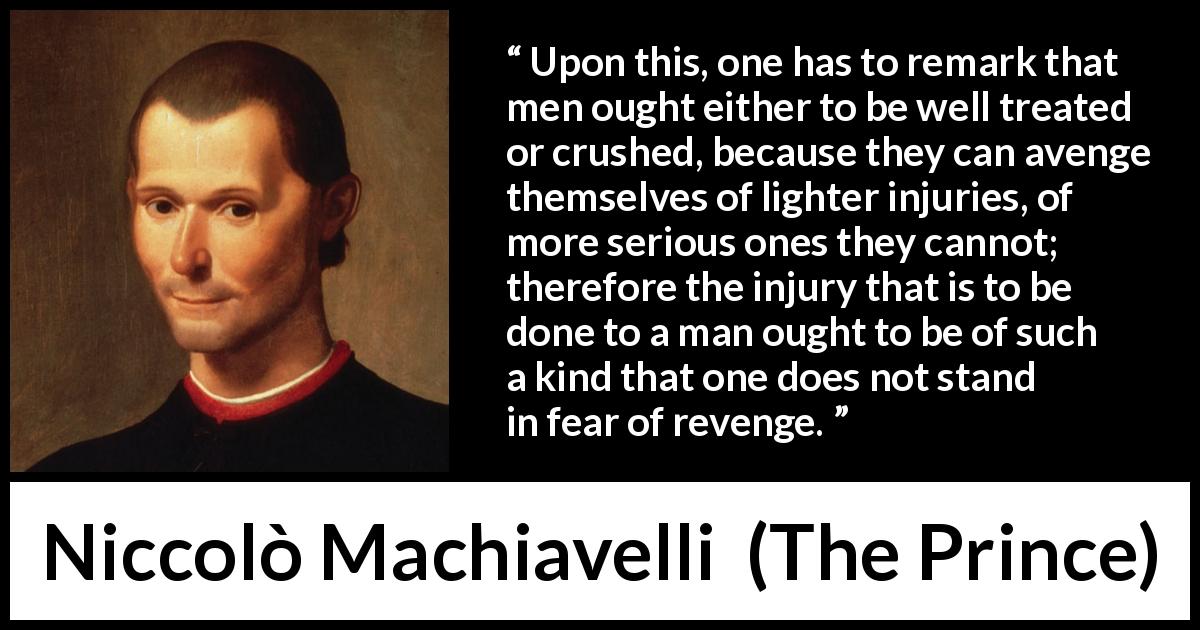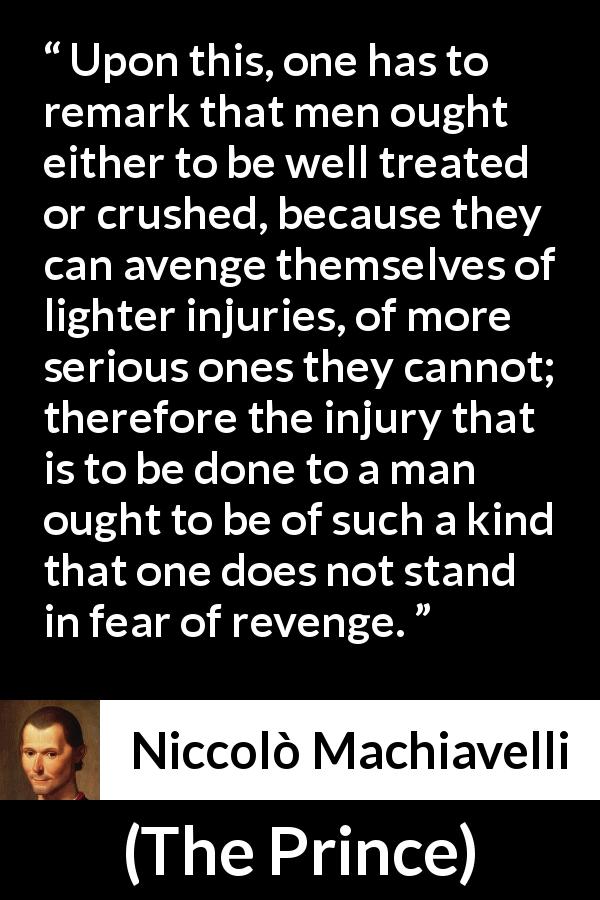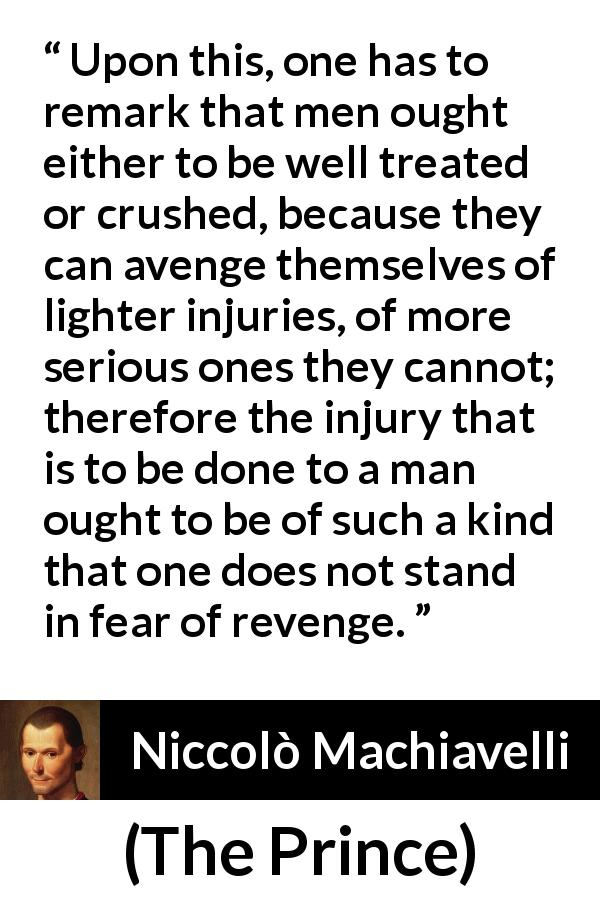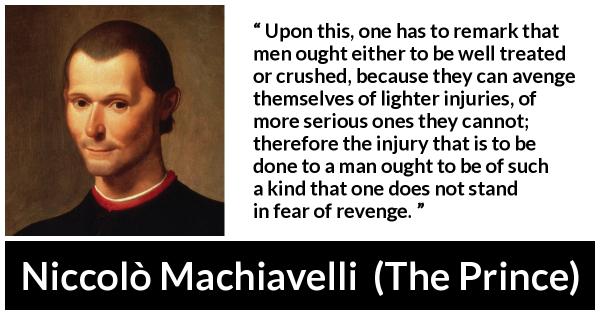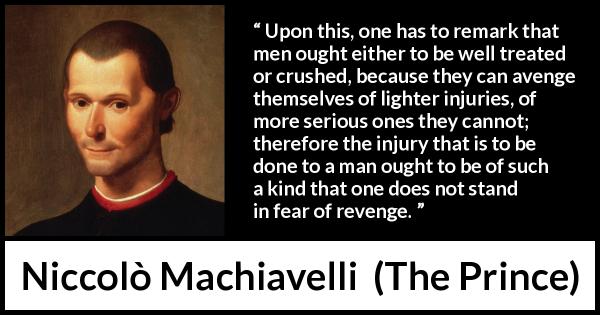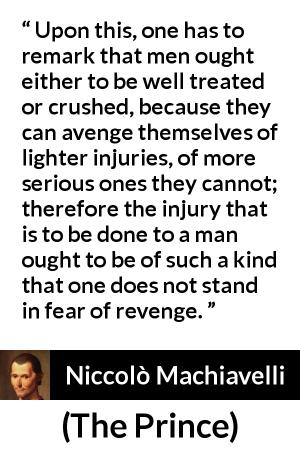“ Upon this, one has to remark that men ought either to be well treated or crushed, because they can avenge themselves of lighter injuries, of more serious ones they cannot; therefore the injury that is to be done to a man ought to be of such a kind that one does not stand in fear of revenge. ”
Niccolò Machiavelli, The Prince (1532). copy citation
| Author | Niccolò Machiavelli |
|---|---|
| Source | The Prince |
| Topic | fear revenge injury |
| Date | 1532 |
| Language | English |
| Reference | |
| Note | Translated by W. K. Marriott |
| Weblink | http://www.gutenberg.org/files/1232/1232-h/1232-h.htm |
Context
“A prince does not spend much on colonies, for with little or no expense he can send them out and keep them there, and he offends a minority only of the citizens from whom he takes lands and houses to give them to the new inhabitants; and those whom he offends, remaining poor and scattered, are never able to injure him; whilst the rest being uninjured are easily kept quiet, and at the same time are anxious not to err for fear it should happen to them as it has to those who have been despoiled. In conclusion, I say that these colonies are not costly, they are more faithful, they injure less, and the injured, as has been said, being poor and scattered, cannot hurt. Upon this, one has to remark that men ought either to be well treated or crushed, because they can avenge themselves of lighter injuries, of more serious ones they cannot; therefore the injury that is to be done to a man ought to be of such a kind that one does not stand in fear of revenge.
But in maintaining armed men there in place of colonies one spends much more, having to consume on the garrison all the income from the state, so that the acquisition turns into a loss, and many more are exasperated, because the whole state is injured; through the shifting of the garrison up and down all become acquainted with hardship, and all become hostile, and they are enemies who, whilst beaten on their own ground, are yet able to do hurt.” source
But in maintaining armed men there in place of colonies one spends much more, having to consume on the garrison all the income from the state, so that the acquisition turns into a loss, and many more are exasperated, because the whole state is injured; through the shifting of the garrison up and down all become acquainted with hardship, and all become hostile, and they are enemies who, whilst beaten on their own ground, are yet able to do hurt.” source
